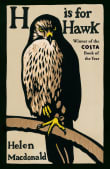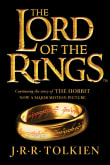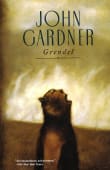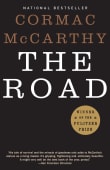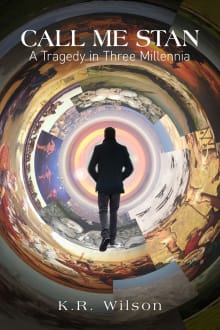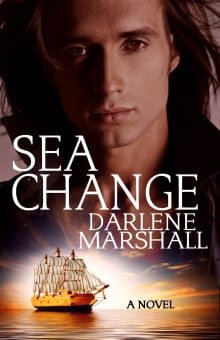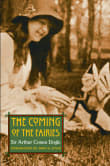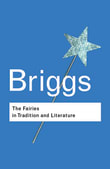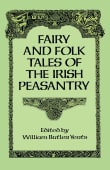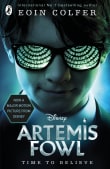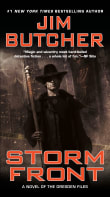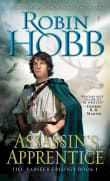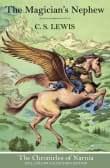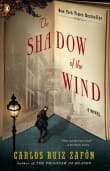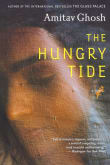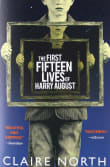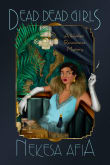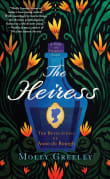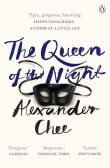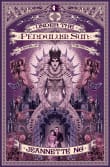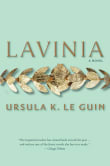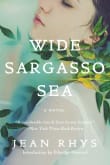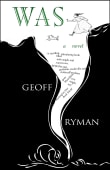Jonathan Strange and Mr Norrell
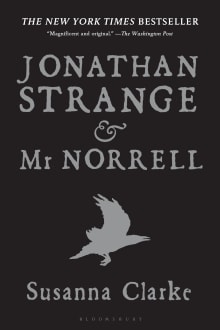
Book description
Two magicians shall appear in England. The first shall fear me; the second shall long to behold me The year is 1806. England is beleaguered by the long war with Napoleon, and centuries have passed since practical magicians faded into the nation's past. But scholars of this glorious history discover…
Why read it?
23 authors picked Jonathan Strange and Mr Norrell as one of their favorite books. Why do they recommend it?

I always love reading a book that so thoroughly surprises me with twists I don't expect that I am left speechless and squirming with glee. This book not only accomplished surprise, but it also consistently intrigued me into reading more, even when the pace dragged. It was worth the reading marathon a million times over! The ending was so satisfying, in part, because it turned everything in the story completely on its head; but I also was incredibly impressed by how every single small detail was vital to the story, nothing wasted or overemphasized, and the final effect was like…

Clarke transports the reader to England during the time of the Napoleonic Wars. There is, however, one small twist: magic once existed in this world and has now returned through two men, drastically changing the course of history and society.
The story is rich in gothic atmosphere and wry humour, and is positively bursting with ideas (there are almost 200 footnotes!). Clarke imbues her protagonists with conflicting approaches to the pursuit of knowledge, with Norrell representing cautious rationality and conservative methodology, while Strange embodies an adventurous spirit and a willingness to embrace the arcane and often the dangerous.
From Duncan's list on The best philosophical fantasy novels.

I read this strange and riveting novel several years ago, so I have to confess that I’ve forgotten a lot of the details.
But I have remembered with absolute clarity the richness of the prose and the well-observed wit, so reminiscent of all the Victorian novels I devoured when I was young; the imaginative scope of a world in which an empire can rise or fall on the skill of her magicians, and the all-too-familiar danger of a rivalry between two powerful and ambitious men vying for supremacy.
It is delightful, moving, and an absolute pleasure from beginning to end.
From S.G.'s list on spellbinding novels with threads of magic woven in their core.
If you love Jonathan Strange and Mr Norrell...

I read less fiction than I’d like to, but this book absolutely consumed me from start to finish. Its wit, historicism, characterisation, and idiosyncrasies were wonderful to be immersed in for a time.
It's an original subject for a book, and its immersion in the period was tonally flawless. It’s a long book; I wished it was longer, I could barely put it down while I was reading it.

I couldn't resist recommending one of my favorite novels.
The period following the French Revolution has often been described in terms of the birth of the modern nation-state and the globalization of the domination of nature, but Jonathan Strange and Mr. Norrell, despite being a work of fiction, does a better job than many works of history in undermining these myths and portraying popular attitudes toward fairies and magic in the early 19th century.
When many people think of fairies, they imagine Tinker Bell and little winged creatures, but cutesy fairies were a Victorian invention, and Clarke preserves the ambiguities…
From Jason's list on to shatter the myth of modernity.

As you probably gathered from my notes above, when it comes to reading historical fantasy, I think there are tons of great options. But if you only try one of the books I’m highlighting, make it Jonathan Strange & Mr. Norrell. Susanna Clarke’s masterpiece has whimsy for days and is set in one of my favorite eras (Napoleonic Europe). And even when I laid the book down during some of the slower bits, I never doubted I’d pick it back up; Clarke’s stewardship was too amusing, too inventive, and ultimately too trustworthy—I always had faith she was shepherding me…
From Nick's list on transporting yourself to an alternate reality.
If you love Susanna Clarke...

Reading great works of speculative fiction (amazing world-building and intentional, controlled prose) has been an adventure in discovery. One of these pearls dropped into my lap quite unexpectedly… the best kind of pearl. I was rummaging through an old used book shop and recognized the title Jonathan Strange and Mr. Norell. Hmmm. I know I knew the title, but where? Oh, that’s right! It was all the rage in the early 2000s. I picked up the tome, bought it, and settled down for a read. Boom! Susanna Clarke’s world-building and prose style (while very British) had created a master…
From G.K.'s list on speculative fiction that connect amazing world.

From the first feat of magic, where stone grinds over stone, whispering with life, you know you’re somewhere special. Clarke brings a warm amusement to the tale of scholarly magicians dealing with disastrous fairies, who are filled with magic but not, unfortunately, with kindness or reason. There are many ways to do fairies, and Clarke’s is both funny and dangerous. An influence on my book was living with a neurodivergent family, and it feels like Jonathan Strange picks up on narcissism. I’d be fibbing if I said she wasn’t a big influence – mostly because she expanded the horizons, showing…
From Kit's list on to feel like you’re living inside their folklore.

This book takes place in the early 19th century and is masterfully written in the style of the time. The language is magical. I find every tangent, every pages-long footnote captivating. They are largely what makes the narrative so eerie, so other-worldly.
Clarke has taken the folklore of England and created it anew, with one important addition: the Raven King. The man who brought magic into the world. What she has created is dark and wild and harkens back to pre-Victorian folklore which is both thrilling and terrifying. All that the Victorians did to sanitize and civilize the myths of…
From Ashland's list on capturing the power of myth.
If you love Jonathan Strange and Mr Norrell...

I will always recall reading the end of this book as being one of the most powerful emotional moments that I have ever had in connection with a piece of art. Clarke’s capacity for such precision in the imagined realm culminates in an experience that is otherworldly. It’s magic in its purest form.
From Douglas' list on stories I wish I could read again for the first time.
Want books like Jonathan Strange and Mr Norrell?
Our community of 12,000+ authors has personally recommended 100 books like Jonathan Strange and Mr Norrell.



